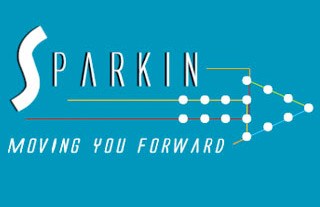Building Brands and Careers
Attributes needed to build brands are much the same as those needed to power a career. And two important similarities are critical for both.
First and foremost you must provide ‘a real difference that is valued’. Whether a brand or employee, this matters. The most valued employees show excellence in addressing critical business challenges, specifically helping your agency attract and retain profitable client relationships. In our field of advertising, this ultimately translates into developing better ways for clients to communicate to their customers. Which neatly brings me to the second point.
This value not only has to be present, it has ‘sold’ so it is recognized as well or in Bill Bernbach’s words, ‘A unique selling proposition is not enough. Without a unique sales talent it may die.’ Successful brands and careerists alike excel at communicating and selling themselves, perhaps loudly, perhaps quietly, but always persuasively.
See some of these links for some broader thinking.
Stuart
Articles and commentary that might be of interest…
- Good Companies Are Storytellers. Great Companies Are Storydoers
- How to Tell a Great Story
- It Was A Dark And Stormy Night… –11 Examples Of Storytelling In Marketing
- Brands Need To Stop Trying To Play Hero
- 5 Ways For Consumer Brands To Become Great Storytellers
- When Storytelling Goes Bad
- Airbnb Tells Emotional Berlin Wall Story Of Reunification
- 7 Examples Of Great Storytelling For Boring Brands
Loyalty – There’s No Need to Fall on Your Sword!
Gnaeus Domitius Corbulo, a Roman general, senator and consul under the Emperor Nero, ‘a Patten’ of his day, was inexplicably ordered by Nero, to take his own life. Nero, the Roman Emperor, was jealous of Corbulo’s military success and feeling threatened both by his ability and military backing, ordered Corbulo to do the unthinkable except to someone known to be completely loyal. Nero ordered Corbulo to fall on his sword, literally. Corbulo followed the order and as his sword was about to strike the sanctity of loyalty personified, he uttered the word, “Axios,” ‘I am worthy; I am loyal.’
Almost a daily conversation I have with individuals involve the words, ‘I am loyal.’ These are noble words, sought after words, words that any of us, personally or professionally would wish to hear from those around us! Why? Because the utterance of those words ‘I am loyal’ says as much about the individual as perhaps it does about us, that is if they are made in relation to us…Our family, our relationship, our agency. And even if they are not made in relation to us, the person uttering the words does so believing we understand the significance of those words.
All relationships, personal and professional, are based on loyalty, defined as a, ‘faithfulness to a person, country, group or cause.’ The value of loyalty in relationships, is that it allows for ‘some’ degree of certainty in planning, crucial to the running of anything, but particularly an agency. (Arguably one of the key threats to the advertising world is the lack of loyalty.) So how does such ‘faithfulness’ manifest?
Loyalty is not something that typically emerges overnight, although it can develop quickly when individuals, groups or teams face great adversity as it is under the most extreme circumstances that true allegiance is revealed. That said, loyalty is something that usually takes time to evolve and is earned when individuals believe others are genuinely invested in them and seek to respond in kind.
Equally, Fealty in a work context is not something that appears without a belief that the boss, the team, the agency culture, that we are loyal to, has not given to us over and over. This giving can be in the form of developing our business savvy, financial support or recompense, in developing the way we think, in creating a ‘virtual family’ for us, so long do people spend at work… The key point, ‘we’ feel that the boss, the team and/or the agency has provided things we consider to be very valuable and meaningful to us with the net effect, we feel beholden, defined as ‘owing thanks or having a duty to someone in return for help or a service.’ And, we should feel this, to a point. Where that ‘point’ is depends on how we have benefited and, what we have given in return, the most valuable thing that we can give, our time.
So, what of the daily utterance I hear, ‘I am loyal?’
Firstly, it is a good thing to here but, there is a true difference between loyalty to the animate and to the inanimate. To a person, a boss, a team when compared to a brand, a culture, an agency. One exists whilst the other ‘exists’ to make money. One has given to your development for reasons that might include money but invariably has given for personal reasons, there’s and yours. The other is not typically interested beyond your ability to help make money!
Very often an individuals’ sense of loyalty is misplaced. It is not to a boss or team, which have long since left the agency, but to the agency, which will hire or fire them very largely based entirely on business numbers, with little thought about them or the impacts of sudden job loss for them. Anyone that believes this is not true will be fortunate in their careers if they do not experience the reality of losing a job. (Perhaps they haven’t taken enough risks?) Then again, this is the power of a culture, that an individual can feel so much continued loyalty.
Secondly, whilst no-one can question the value of the trait of loyalty, there is a clear difference between loyalty and blind-loyalty, ‘being loyal to a person, agency or cause despite the damage the person/agency/cause inflicts.’
Damage is a relative term and typically more one of opportunity cost. The damage is relative loss of opportunity for more rapid development, be that more money, responsibility, practical and intellectual development to name a few things. Loyalty is proffered with the feeling that what has been provided for the individual and their development requires in turn that individual should not work for another boss, or team and certainly not for another agency as they perceive this would be ungrateful or in the worst case, disloyal.
My belief is that loyalty is a great thing, to experience or to seek. I say this as it means we have had great people around us, that we feel have shown an interest in our development. We should repay this loyalty to individuals certainly and to the nebulous concept of the ‘agency’ as well. But, today we have to be the Chief Coach in the management of our own careers. If we’ve had a nurturing boss, team or culture, fantastic. If others are mapping out our development for us and, we are growing, then ‘we’ are fortunate indeed. But that said, past growth is great, but it is, past. We need to continue to develop. And, if we can no longer do this in our current role, we must seek it most certainly in the agency to which we are loyal first and then if necessary, to look beyond.
Reviewing market possibilities or simply comparing our current salary, benefits and opportunities can actually make us even more loyal as we have a renewed sense of how well we are being looked after. Although, reviewing market opportunities can also be a wake-up call as individuals do see real opportunity for more rapid advancement. Some might suggest, in simply asking about the broader market, that an individual is acting in a disloyal manner I suggest not if you give your current employer every opportunity to keep you growing whilst you keep working hard and focused and take the suggested steps below.
Initially, we should seek the counsel of those individuals that have always helped us, to give them the opportunity to reassure, to re-equip or to provide new challenges. We should where possible (and where we believe the agency has the ability to deliver) be open about how we hope to develop. This openness along with all our hard work, is the way to return loyalty. (sometimes it is impossible to be open.) Having done this, if we are still unable to continue to develop in our current role or place of work, then we should look for new career challenges with our heads held high and in the words of General Corbulo, but without the tragic consequences, we can to ourselves at least, utter, ‘axios’ or, ‘I am worthy.’
IS YOUR SUCCESS A CONSCIOUS CHOICE?
YOUR SUCCESS IS…..?
‘You can’t wait for inspiration. You have to go after it with a club.’ (Jack London)
I believe we also need to pursue success with a club but the danger of blind pursuit, of not knowing what we are seeking is almost as bad as non-pursuit, which brings me to a recent meeting I had with a candidate.
The individual in question, who I shall call ‘Von, ’arrived slightly late, carpet bombing the table between us with his satchel and jacket.
I usually like to frame a candidate conversation with an understanding of broad life goals that they aspire to. Context I was taught, is king. To that end, I asked Von to tell me what success looked like for him. And then it happened….A very sudden and meteoric meltdown ensued. “Isn’t that obvious! Don’t you know what success is…” he shot back. “Aren’t we all pursuing the same thing?
I reflected on this notion of us all pursuing the same things and of course we are, at different times, to differing degrees based on a finite number of core motivations, pursuing the same thing. The great thing about success is that we can make it anything we want it to be. The awful thing about success, we tend to make it all about everything everyone else wants it to be.
“Yes” and “No” my answer equivocal, my tone anything but. “Have we met before?” I asked? “Did we speak at length?” Knowing we hadn’t. I continued calmly, measuring his response. “Are you a carbon copy of everybody else?” He blinked a few times. My tone then raised an octave, indicating slight impatience. “Because, you need to be able to tell me what your definition of success is. I want to know what it is you really want” “I need that direction from you if I’m going to help you.” I continued.
I really liked something Sheryl Sandberg said, ‘let me not die while I am still alive.’ That resonated. It scares me, the idea of living life without passion/not making great use of time. But passion and time usage in themselves vary greatly based on life-stage, background, relationships, support structures, what we value and the way we see the world, along with a host of other influencing factors.
Von leaned back in his chair. He looked somewhat confused. Because I had reacted? Or, because he felt perhaps he had been too forthright, even rude? Or perhaps because he thought that what was obvious, what is success for him, is anything but? Perhaps he had assumed success must be everything everyone else is encouraged to see as success.
Many candidates I meet today seek progression in a framework of what I describe as ‘big picture success.’ They need to conquer this world, or others.. That is bigger title, responsibility, salary, team, office…which presage the bigger apartment, car etcetera. And you know, this ‘conquer the world mentality,’ ‘big tangible success’ is fine, it’s just not for everyone all the time, it can’t be. And then others are focused on ‘big intangible success:’ Bigger meaning regarding larger non-work goals, more significant relationships, desire to have a positive impact on the world; People are thinking at a much earlier age in terms of their legacies. And, tangible and intangible are not irreconcilable, just in flux.
As our meeting progressed Von’s manner mellowed. It became clear to me that his defensiveness projected as arrogance. He knew that for someone paid to think, to work out how to solve problems it could be construed as weakness if he was unsure what he really wanted yet, he was unsure. He assumed he had no choices, that he was consigned to having to follow everyone else’s definition of success. And that’s when we started to talk meaningfully about what was truly important for him and how to navigate forward. We discussed.
- Knowing what you do well.
- Knowing what context you thrive in.
- Knowing what you won’t put up with
- Knowing what resources you need to be in place to thrive
- Knowing that your skills/function are valued by a prospective employer
- Knowing your putative employer’s definition of success
- Knowing what success is for you/that this next step takes you toward your objectives











